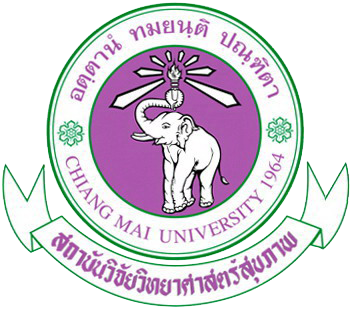A5279 Team IMPAACT and ACTG
Study title
Phase III Clinical Trial of Ultra-Short-Course Rifapentine/Isoniazid for the Prevention of Active Tuberculosis in HIV-Infected Individuals with Latent Tuberculosis Infection
Study Code A5279
Network
ACTG
Study PI
Prof. Virat Sirisanthana, M.D.
Study Co PI
Linda Aurpibul, M.D.
Study sites
More than 50 research sites around the world in north America, Latin America, Africa, and Asia (Thailand and India)
Funding agency
International Maternal Pediatric Adolescent AIDS Clinical Trials Group (IMPAACT) Sponsored by Division of AIDS (DAIDS), National Institute of Allergy and Infectious Disease (NIAID), National Institute of Health (NIH), US
Study design
This study is a multicenter, randomized, open-label, phase III clinical trial of an experimental TB treatment regimen (Arm A) of RPT/INH daily for 4 weeks compared to a standard TB treatment regimen (Arm B) of INH daily for 36 weeks in HIV-infected participants who do not have evidence of active TB. Each participant will be followed for 3 years (156 weeks) after the last participant is enrolled.
Weeks Arm A (Experimental) Arm B (Standard)
1 – 4 RPT weight-based dosing*/
INH 300 mg daily INH 300 mg daily
5 – 36 No treatment INH 300 mg daily
37-close to follow-up No treatment No treatment
Study objective
1. Primary Objective
To compare the efficacy of a 4-week daily regimen of weight-based RPT/INH to a standard 9-month (36 week) daily INH regimen for TB prevention in HIV-infected individuals.
2. Secondary Objectives
2.1 To compare safety and tolerability of the regimens
2.2 To compare overall and non-TB mortality rates among participants receiving the two regimens
2.3 To compare adherence rates in the two regimens
2.4 To investigate patterns of antibiotic resistance among Mycobacterium tuberculosis (MTB) isolates in participants failing prophylaxis
3. Supportive/Exploratory Objectives
The following objectives will be defined in detail in separate analysis plans.
3.1 To inform public health policy by comparing estimated costs and cost-effectiveness of the two regimens in various populations
3.2 To investigate the effect of RPT on efavirenz (EFV) and nevirapine (NVP) plasma concentrations
3.3 To describe exposure-outcome relationships among EFV and NVP pharmacokinetic (PK) parameters and virologic failure, and safety and tolerance related to EFV and NVP
3.4 To investigate relationships among genetic characteristics of drug metabolizing enzymes and drug transporters and the PK characteristics of EFV, NVP, and RPT.
Number of enrolled participants (overall/at RIHES)
About 3,000 HIV infected people have been enrolled in this study for all sites. For the Research Institute for Health Sciences and Faculty of Medicine, Chiang Mai University will enroll an approximately 193 participants.
Year: started
2012
Year: expected to finish
2018
Significance
Some people are infected with the bacteria that cause TB, but their immune systems (the system in a person’s body that helps fight infections) prevent the bacteria from multiplying and they do not have any symptoms from the infection; these people are said to have latent TB infection. Latent TB can develop into active disease and cause sickness, especially in people with weakened immune systems, such as those with HIV.
The standard way to keep latent TB from becoming active is treatment with 6 to 9 months of daily isoniazid, an anti-TB drug. ACTG researchers are interested in seeing if shorter treatments work just as well as this standard treatment. This study will compare the standard treatment with a much shorter treatment (4 weeks) of the anti-TB drugs rifapentine and isoniazid, to find if this shorter treatment is as good. The study will also compare the safety and tolerability of the two treatments. Both rifapentine and isoniazid are approved by the United States (US) Food and Drug Administration (FDA).
Study website (if any)
https://actgnetwork.org/
For member who has required password only
Pictures / photographs




